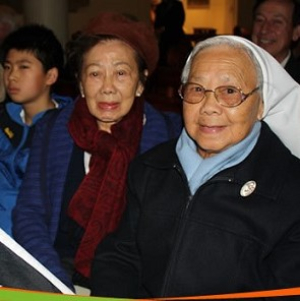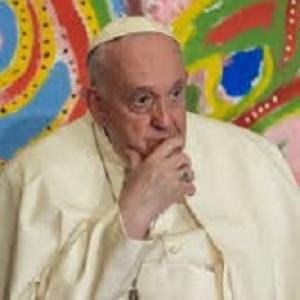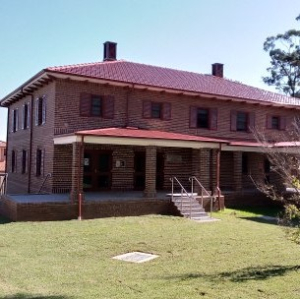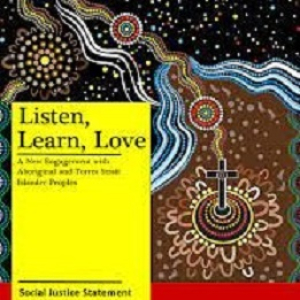Peter MALONE
Beast Must Die, The/ UK
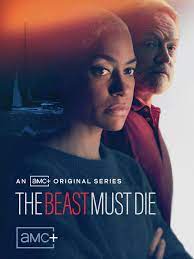
THE BEAST MUST DIE
UK, 2021, 6X 45, Colour.
Cush Jumbo, Billy Howlel, Jared Harris, Maeve Dermody, Mia Tomlinson, Geraldine James, Barney Sayburn, Nathaniel Parker, Douggie McMeekin.
Directed by Dome Karukoski.
The Beast Must Die was an acclaimed novel of the 1930s by British writer, Nicholas Blake, which was the pen-name for poet Cecil Day Lewis. It was filmed in 1952 in Argentina, then in 1969 by Claude Chabrol. Here is the 21st-century version, this time changing the central character from male to female. The screenplay, a television series in six parts, follows the direction of the novel.
The series is a star vehicle for Cush Jumbo, prominent on stage, film and television (including seven episodes as an assistant to Vera). It is also a good solid vehicle for Billy Howle and offering a star turn for Jared Harris. There is very strong supporting cast led by Geraldine James as the bitter maiden aunt, Barney Sauburn as a chubby put-upon son, Nathaniel Parker as a therapist.
At the centre of the action is a hit run accident, the young son of Frances (Cush Jumbo), widow, angry at the minimal police investigation, confronting the new officer on his first day, Nigel (a character in several of Blake’s novels) who has his own traumas and is participating in therapy.
Frances leaves everything, finds accommodation, shaves her head, starts an investigation, capitalising on clues, tracking down a young woman seen at the scene, ingratiating herself with the young woman, pretending to be researching a novel, leading to a family, the arrogant patriarch, George (Jared Harris), his belittling of his son, Phil, his put upon wife, Violet (Maeve Dermody) and relying on his older sister, arrogantly snobbish, often bitter towards the other members of the family, (Geraldine James).
The film is a strong portrait of revenge on the part of Frances. It is also a strong portrait of Nigel and his personal struggles and his desire for integrity and the police investigation.
With Frances ingratiating herself into the family, planning to get revenge by killing George, she also does some good for other members of the family while alienating the aunt.
The plot seems to be undone when George discovers the truth about Frances – but there is a very interesting twist at the end when she actually achieves her plan against George.
- The original novel, Nicholas Blake (Cecil Day Lewis), the 1930s? Argentinian and French versions? Updated? The central character from male to female?
- The title? The killer as a beast, hit run, conscience-less, cover-up?
- The initial situation, Frances, love for Martie, her husband, sailor, helping others, his death? Her sadness, the outing with her son, his going off, the hit run?
- Frances, a character, the impact of the hit run, the police investigation, no conclusions, inadequately handled, indications of pressure, political, personal? Her coming to the police station, the encounter with Nigel, her absolute rage?
- Nigel, age, his experiencing the trauma, the memorial, Liz, the connection with her, the various encounters? His being in therapy, critical of the therapist, the patience of the therapist? The discussions, his trauma, desperation? His role with the police, the role of his work keeping him steady? The meeting with the staff, the young woman, with Vincent? The encounter with Frances, his reaction?
- Frances, her decision, anger, her inheriting her husband’s money, finding accommodation, new clothes, shaving her hair, her pursuit of the investigation, the questions, the man giving her the information, the site, the photo of the young women, going to the club, finding Lena, bonding with her, the explanation of writing the novel, getting to the house, the encounter with George, with Joy, with Violet, with Phil? Her interactions with each? Phil and the treatment by his father, Frances, teacher, her sympathy? Out with Lena, Lena drinking, the bond between them? Going to the house, the snobbery towards Frances? The possibility of living in for the summer? Her work with Phil, sailing? The drive with George, his speeding? Taking him sailing, the plot, his unmasking her? Ruining her plan, going into the sea, her being recovered, hospital, the discussions with Nigel, going to the house for her clothes, the family reaction? George’s death, the explanation of her plot, success in vengeance? And her seeing her son so often?
- Nigel, Vincent as his assistant, adequate and inadequate? The young woman, getting her to do the research? His detection, the issue of Nick the gardener and his crime, the arrest, interrogation? Suspicions of George? The encounters with Liz, therapy? The therapist giving up, his own personal issues? Pursuing the case, to the house, George’s death, the final discussion with Frances?
- Lena, her life, relationship with George, the affair? Violet and her life? Despised by Joy? In the house, reluctance? The tension with George, his pursuit of her? The bond with Frances, Frances using her?
- George, his arrogance, marriage to Violet, her health, mental situation, the affair with Lena? Golf, his connections, business and plans? The hit run, hiding the car, the phone calls, the cover-up? In the house, treatment of Phil, the sport, Frances talking with Phil? Going with Frances, the drive, going sailing, his knowledge of the truth? His return, his death?
- Joy, the flashbacks to her care for George, always stepping in to help him, her attitude towards Violet, despising Lena, snobbery towards Frances? The effect of George’s death? Violet and her self-assertion, ousting Joy?
- Phil, going to the police, confessing that he had killed his father, the talk of poisons, the research for Frances?
- The irony of George being poisoned, Frances and her plot, the staging, her revenge?
Fourmi/ Ol Love and Lies
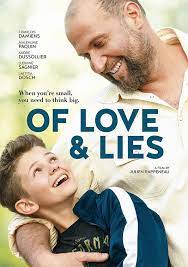
OF LOVE AND LIES/ FOURMI
France, 2019, 105 minutes, Colour.
François Damiens, Maleaume Paquin, Andre Dussollier, Ludivine Sagnier, Laetitia Dosch, Pierre Gomme.
Directed by Julien Rappeneau.
It is being complimentary, but it must be said that this is very nice film. It is the equivalent of a fairytale in contemporary life. And the focus is football.
We visit a small French town, especially the local football team for young boys, the sympathetic coach (veteran Andre Dussollier), the President of the club, sponsors, and the initial match where a young boy, Theo (a very engaging Maleaume Paquin), small but very effective during the play. And there are some scouts for British club, Arsenal, who have a talk with Theo praising him but saying he is too short to be recruited.
But, of course, all the adults assume that he is being recruited and are delighted. Theo hasn’t the heart to tell the truth, especially to tell his very boisterous, intruding on the field, erratic father, an alcoholic (a lively, sympathetic performance by Francois Damiens). His parents separated, his mother with her stepfather whom Theo does not relate well with. He wants to live with his father – and this gives the opportunity, his father eager to prepare him for going to England, eager to go with his son. So, plenty of room for comedy of errors.
Theo has some good friends in the town, confiding in one, but generally keeping his secret. But he does go to an eccentric friend, Max, an IT expert, who is able to manipulate emails allegedly from Arsenal, reports, results of interviews…
It all goes well enough for Theo except the burden of his not telling the truth. Ultimately, the truth will out. The scout comes back to watch the boys playing, the dismay of everyone concerned, the club president and his appeal for sponsors because of Theo’s talent, the coach and his assistant, but, especially, Theo’s father who has been helped by a busy social worker and has stopped drinking, but falls off the wagon, involved in a fight.
The friends help in their way, his father gives a lot of thought to the situation and meets his son, urging him to come back and play and the local club match – where, as in all good fairytales, Theo is able to kick a winning goal. And an invitation from Arsenal.
Plenty of happiness despite the deception – and a touch of tears.
- A contemporary fairytale? In real life? In wishful hoping?
- The setting, the French town, homes, school, football clubs, restaurants, social work? The football games? The musical score?
- Theo’s story, his age, his parents, the break, his alcoholic father, his devotion to him, his mother, marrying again, not liking his stepfather? His skill at football? Claude as coach, other members of the club, the boys? His skills? The talent scout for Arsenal, noting him, the conversation? Everybody assuming that he was chosen? His not wanting to disappoint his father? The love and the lies?
- The portrait of the Father, background, love for his son, separation, interactions with his wife, meetings with his son, their sharing, talking, the son wanting to live with him? His son wanting to please him? His enthusiasm, at the football matches, shouting and intruding, being barred? His zest with his son’s success, friends, drinking?
- Theo and his mother, the discussion with his stepfather and his firm stance?
- The social worker, her job, harassed, with Laurent, the discussions, her interventions, his pleading about court orders, the visits, the friendship, her exasperation, being fired?
- Theo and his friends, confiding in each other, the issue is not telling the truth? His friendship with Max, Max and his IT abilities, his interventions, rerouting letters, interviews…?
- Theo, his life, the discovery of the truth, the effect on everyone, his father and his disappointment, drinking, his parents, the friends, Romane and her disappointment? Staying by himself, not coming to the match, Claude and his support?
- His father searching for him, Romane and her help, their talk, his return to the match, the skills?
- The fairytale aspects, Max and his interventions, the talent scout coming again, talking, the Theo had grown taller, the contract? The happy ending?
- His father content, his mother going to England with Theo, hopes for the future?
Patient Zero/ 2018
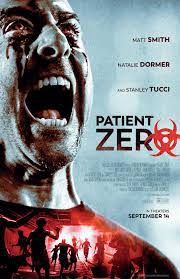
PATIENT ZERO
UK, 2018, 93 minutes, Colour.
Matt Smith, Stanley Tucci, Natalie Dormer, Clive Standen, Agyness Deyn.
Directed by Stefan Ruzowitzky.
The term Patient Zero emerged during the 1980s in the context of AIDS and the search for the origin of the spread of AIDS in North America. Which means that this title is initially misleading.
This time there is a world plague situation, originating in America’s midwest, a plague of rabies, the film initially indicating billions being infected. There is a parallel to the zombie infestation. However, the infection turns the humans into angry creatures, but still with their memories, able to communicate.
This is a British production, filmed in London, with a mainly British cast, but (perhaps for the wider American audience) set in the United States, with lead Matt Smith having to use an American accent.
While there are scenes of mayhem, crowd scenes, individual scenes, the rabid victims biting and infecting others, much of the action takes place in special and secret laboratories, militarily guarded, where doctors try to find an antidote. In charge is Dr Rose, played by Natalie Dormer. But the authorities are relying on the skills of Morgan, played by Matt Smith, who has been bitten but has not been infected to his detriment. He interrogates those infected, trying to find out where they came from, locating patient zero. He himself is sometimes angry and the interrogations, confronting the angers of the victims, playing music which torments them, erratic in his confrontations.
There are members of the staff, one cheerful member being bitten and having to be shot. The military official clashes with Dr Rose, eager to shoot those infected than help with any investigations.
At the centre of the investigation is the Professor, played by Stanley Tucci. He is not like the others, is not tormented by the music, and, while disfigured in his face, is able to explain his memories, philosophise about the nature of raging humanity, tell the story of his infection and his killing of his wife and daughter. He turns the tables on Morgan by explaining that those infected are looking to him as Patient Zero for their future.
There is some final mayhem, an escape sequence, Morgan helped by his infected wife who sacrifices herself – but, there is no definitive ending, all open-ended.
- A plague film? Rabies infection? Human transformation, rage? The parallel with the zombies?
- The American setting, yet a British production, the cast, Matt Smith and American accent? Credibility?
- The situation, the explanation, the search for an antidote, the search for patient zero to help determine the antidote? The isolation, the laboratories, protection, armed guards, the cages?
- The background, scenes of infection, mass scenes and rage, individuals in the cage, the treatment, communication with them, the physical effects, psychological effects, the torment of the music? The attacks, the biting, the military and the shootings?
- Morgan, his being bitten, not infected, his abilities with those infected, communicating with them, treatment, tactics, stand over tactics? The issue of his wife, in the cage, his love, support? His working with Dr Rose, collaboration, the sexual encounter, consequences?
- The attitude of the military, the commander and orders, Knox, brutal, confrontations with Dr Rose, the infection of the genial worker, the effect, seemingly saved, the break out, his being shot?
- The range of those interrogated, the past, their lives, explanations, attitudes?
- The professor, his personality, arrogance, the flashbacks to his life, the lectures, the phone call, the outbreak, the students, the attack on him, returning home, his wife reassured, finding the blood, his attack on her, his daughter, killing his family?
- His cold presence in the laboratory, the interrogations, his philosophising, about human nature, rage? His declaration that Morgan was really Patient Zero because he had survived despite the infection, and that those infected were looking to him to change them for the future?
- The confrontation with the professor, his death?
- The attack, Morgan and his decisions, Knox killed by Dr Rose, taking his wife, the warnings, his wife sacrificing herself? The escape with Dr Rose?
- The unfinished ending? Speculation as to the future of the human race?
Summer Days, Summer Nights/ Summertime
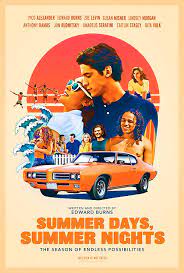
SUMMER DAYS, SUMMER NIGHTS/SUMMERTIME
US, 2018, 123 minutes, Colour.
Pico Alexander, Lindsay Morgan, Anthony Ramos, Amadeus Serafini, Caitlin Stasey, Rita Volk, Edward Burns, Zoe Levin.
Directed by Edward Burns.
For more than two decades, Edward Burns has contributed very personalised films, perspectives on ordinary American life (although opening up at times to a wider world, New York gangster world, for instance, Ash Wednesday). But, mostly, he focuses on families, family relationships, joy, tensions. And this is the case here.
We are in Long Island, Memorial Day, 1982, an opening which introduces us to a wide range of characters, lay teenagers, finishing high school, working for the summer, prospects for the future. No one really emerges as the centre except for JJ Flynn, played by Pico Alexander. He is an anchor with his own story, relationships, uncertainties, and his relationship with his father, played by Edward Burns.
Also in the cast is Anthony Ramos in an early role, later to emerge with In the Heights and Transformers, Rise of the Beast.
Very American, perhaps too American for wider audiences but eliciting some memories of now long ago decades.
- Memories of the 1980s? Summer? Memorial Day?
- Location, the town, the beach, homes, clubs, bars? The range of the musical score and memories of the 1980s?
- The films of Edward Burns, writing, directing, performing? Over decades, his porter of people, families, New York?
- The introduction, the range of characters, their age, high school, prospects, summer behaviour, relationships, questions? The teenage generation? The parent generation?
- The characters:
JJ, age, high school, leaving, prospects, meeting girls, the rich girlfriend, his other friends, confiding, talking, testing? His work, relationship with his father? Father’s advice?
Terry, the summer, music, composing, relationships, older?
Susie, personality, returning, relationship with Frankie, his relationships? Ups and downs and the relationship?
Miller, Lydia, outgoing, advice?
Debbie, relationship with Terry?
- The forthrightness of each of the characters, their emotions, on their sleeves, expressing them, audience sympathy, with younger audiences, with the parent generation? On older audiences looking back with memories?
- Work during the day, encounters, sexual relationships, tentative, forthright, exposing personalities, strengths, limitations? The block party? The fireworks?
- Edward Burns and his contribution to perspectives of Americana?
OLSH Sisters beginning the celebrations for 2024, 150 years of the Congregation
OLSH Sisters beginning the celebrations for 2024, 150 years of the Congregation

30 August, 1874: Foundation of the Daughters of Our Lady of the Sacred Heart by Father Chevalier in Issoudun, as a Sister Congregation to the Missionaries of the Sacred Heart.

In honour of the commencement of our Jubilee Year, the Province of Australia has prepared a Jubilee Year opening video tribute titled "Our Mission is Love" dedicated to the Province of Australia. It features the Australian sisters, the various communities, some special messages, especially from the NT, PNG, Kiribati, South Sudan. And greetings from other Provinces all around the world. And students from the colleges at Kensington and Bentleigh. It runs for 15 minutes.

Here is the link. https://youtu.be/pUzHVWxtYg0.

Or simply Google: FDNSC/OLSH AUSTRALIAN PROVINCE AND THE OPENING ...

Some recent observations by Pope Francis on stances in the Church – and on what he has called ‘backwardism’
Some recent observations by Pope Francis on stances in the Church – and on what he has called ‘backwardism’
With the first session of the Synod in Rome coming closer, opposition is increasing, especially in the US. Here are some provocative statements and some photos from Pope Francis.
Quotes:
I want to remind that backwardism is useless, and it is necessary to understand that there is a correct evolution in the understanding of questions of faith and morals.
And instead of living by doctrine, by the true doctrine that always develops and bears fruit, they live by ideologies, But when you abandon doctrine in life to replace it with an ideology, you have lost, you have lost as in war.
If you don't change upward, you go backward, and then you take on criteria for change different from those that the faith itself gives you to grow and change. And the effects on morality are devastating.
Those who today always look for disciplinarian solutions, those who long for an exaggerated doctrinal 'security,' those who stubbornly try to recover a past that no longer exists - they have a static and inward-directed view of things. In this way, faith becomes an ideology among other ideologies.
What I don’t like at all, in general, is that we look at the so-called ‘sin of the flesh’ with a magnifying glass. If you exploited workers, if you lied or cheated, it didn’t matter, and instead relevant were the sins below the waist.
The door is open to everyone, everyone has their own space in the church, How will each person live it? We help people live so that they can occupy that place with maturity, and this applies to all kinds of people.
In memory of Paul Stenhouse MSC, The Stenhouse Wing at Campion College.
In memory of Paul Stenhouse MSC, The Stenhouse Wing at Campion College.

Michael Fallon writes: The Province gave Paul Stenhouse's specialized library to Campion College when we heard that they were building a special wing
dedicate to him. He was a great supporter of the College from its beginnings. We also gave them books from Paul's library that were doubles of books already present in our monastery library.

Today I visited Campion College for the first time (with Paul Jennings’ camera). I saw the building. The books are still being processed.

From the Campion College website: Part of the plan includes four new residential houses built to accommodate College’s growing community of students.

Fr Stenhouse was a renowned scholar and had a deeply Catholic perspective of the liberal arts and of the nature of Campion as a Catholic liberal arts institution. We at Campion College think it fitting to honour the late Fr Paul Stenhouse MSC by naming one of our residential homes in his memory.

Social Justice Statement, 2023-2024: Listen, Learn, Love: A New Engagement with Aboriginal and Torres Strait Islander Peoples.
Social Justice Statement, 2023-2024: Listen, Learn, Love: A New Engagement with Aboriginal and Torres Strait Islander Peoples.

Most significant for the referendum year.

The Statement is in two parts: From NATSICC, National Aboriginal and Torres Strait Islander Catholic Council and from the Bishops. The Statement invites all to listen to the Voices first.

The Statement was launched by Biahop Vincent Long. OFM.Conv:

The Statement I launch today on behalf of the Australian Catholic Bishops Conference entitled “Listen, Learn, Love: A New Engagement with Aboriginal and Torres Strait Islander Peoples” encourages us to apply the wisdom of St John Paul II to our lived reality. It offers Catholics and all Australians a constructive approach to take in relation to the upcoming referendum. Even more importantly, to the way non-Indigenous Australians will engage with Aboriginal and Torres Strait Islander Peoples in the months and years following the referendum.
One of the objectives of this statement is that we want Catholics to understand that Catholic Social Teaching and Catholic social action are not simply theoretical and academic exercises.
Listening and learning is also an essential part of the synodal approach which the Holy Father is inviting us to embrace. We tried to keep this in mind, too, as we wrote this statement.

Vinnie Yes poster
One big difference you will notice in this statement is that we Bishops step aside for a significant portion and invite members of NATSICC to speak directly to us all. This is inspired by Pope Francis’ promotion of a culture of encounter and synodality.
Whatever the outcome of this year’s referendum, we ask the Church in Australia to make efforts to lead the way for our fellow Australians. Our attitudes and actions towards First Nations Peoples need to be grounded in justice, love, and humility. “Doing justice, loving kindness and walking in humility” as the prophet long ago urges us.

This week, Mission Office visits, cooking pizza at Cuskelly House and two Kookaburras at Kensington Monastery.
This week, Mission Office visits, cooking pizza at Cuskelly House and two Kookaburras at Kensington Monastery.

MSC Mission Office, Roger Purcell visits Blackburn parish

With Khoi and Trieu

and his old school, Monivae.

The Monivae visit was featured this week on the Mission Office podcast, Mission Alive, as was an interview with Sister Rita Grunke OLSH who has worked in South Sudan for many years. Recommended viewing each day on the Mission Office site – well worth Bookmarking.

Formation Pizza,
From the Facebook page, MSC Vocations - Australian Province. What do you have for dinner tonight? Mark Hanns, post-noviciate director is making his own version of pizza for the community. (An apology to Italians! LoL )

Check the MSC Vocations Australia Facebook page for MSC and Vocations promotion and news (From Cuskelly House)
And, in the St Francis’ vein.
Kookaburras at the Monastery: Thank you, John O’Connor, for this, "…and it came to pass that two Kookaburras discovered the light in the monastic garden during the daylight time of the eleventh hour - how enlightening is that?” Perhaps over-reading the parable of the Labourers in the Vineyard!!

Mama's Boy
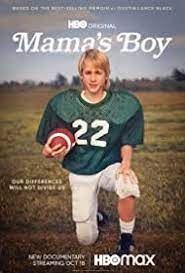
MAMA’S BOY
US, 2022, 102 minutes, Colour.
Dustin Lance Black and family.
Directed by Laurent Bouzereau.
This is an interesting, often arresting, documentary portrait of a family based on the novel, Mama’s Boy: A Story of Our Americas, written by Dustin Lance Black. And he has written the screenplay for this documentary which has been directed by prolific director documentaries and short films, Laurent Bouzereau. It is a film with many significant themes dramatised and explored throughout.
The film opens with Dustin Lance Black receiving an Oscar for his screenplay for the 2008 film, Milk, based on the life, work and assassination of San Francisco representative, Harvey Milk. Black gives a rather impassioned speech to encourage, especially young gay men, of changes in American consciousness and legislation. Which establishes him and his cinema work, and introduces him as the host of this documentary, a personable host, articulate, earnest and committed.
However, the first 25 minutes of the film focuses on Black’s mother, Rosanna, called Anne, the poor background of the family in Louisiana, going back to the early 20th century, her birth in 1948, the period of the prevailing of polio and her life with polio, doctors pessimistic about her survival, yet her showing enormous determination, her energy to walk again with splints and crutches, difficulties with family in accepting her condition, but her decision to study, get a scholarship, study medicine. And there is a lot of film footage of her as well as the comments by Black himself. She was also warned against marriage because having a child would kill her – but, she married, and had three children. She was encouraged by the Church of Latter Day Saints, devoted and devout, and their guidance in recommending two husbands (one who eventually abandoned his wife and three children, the other sadistically brutal).
Anne is seen throughout the film, eventually marrying a supportive husband, also interviewed throughout the film, and working for the American military the decades in medical laboratories.
This aspect of the film is significant, an opportunity to appreciate the impact of polio in the early 20th century, the importance of Jonas Salk and his discoveries, but the consequences on those who contracted the disease.
Another important aspect of the film is domestic violence, Lance Black calmly but emotionally recounting his experience of his father, the next step father and his even murderous violence. Not only the effect on Anne, but on the three children.
The film was also interesting on the theme of family, the eldest son, Marcus, joining gangs, drugs, drifting, and, rather later in life, coming out as gay, an up-and-down life, dying before his mother. The younger son, Todd, interviewed throughout the film giving a further perspective on the stepfathers and his mother, his support of the family, marrying and having his own family.
And, throughout the film, there is the theme of sexual orientation, public attitudes in the American south, Lance Black aware of his orientation but suppressing it for a long time. There is an interview with a close friend who was very supportive, and still is, as well as his partner, British athlete, Tom Daley, whom he married in 2017.
While he worked in Hollywood on television projects on short films, invited to make the film, Pedro, about a gay athlete, he achieved success with his screenplay for Milk, going on to write other screenplays including J.Edgar,
But, urged on by his mother who was initially shocked by the thought of his orientation but who came to visit him in Los Angeles and listen to the stories of his friends, he became an advocate from 2009 onwards for LGBTQI+ causes, combating propositions against same-sex marriage, a great deal of writing and public speaking, and the change of attitudes over the years and changes in legislation.
As she was dying, Anne urged her son to fight for her life. He was puzzled by what she meant – but, in writing his book and in making this film, he has definitely fought successfully for his mother’s life.
